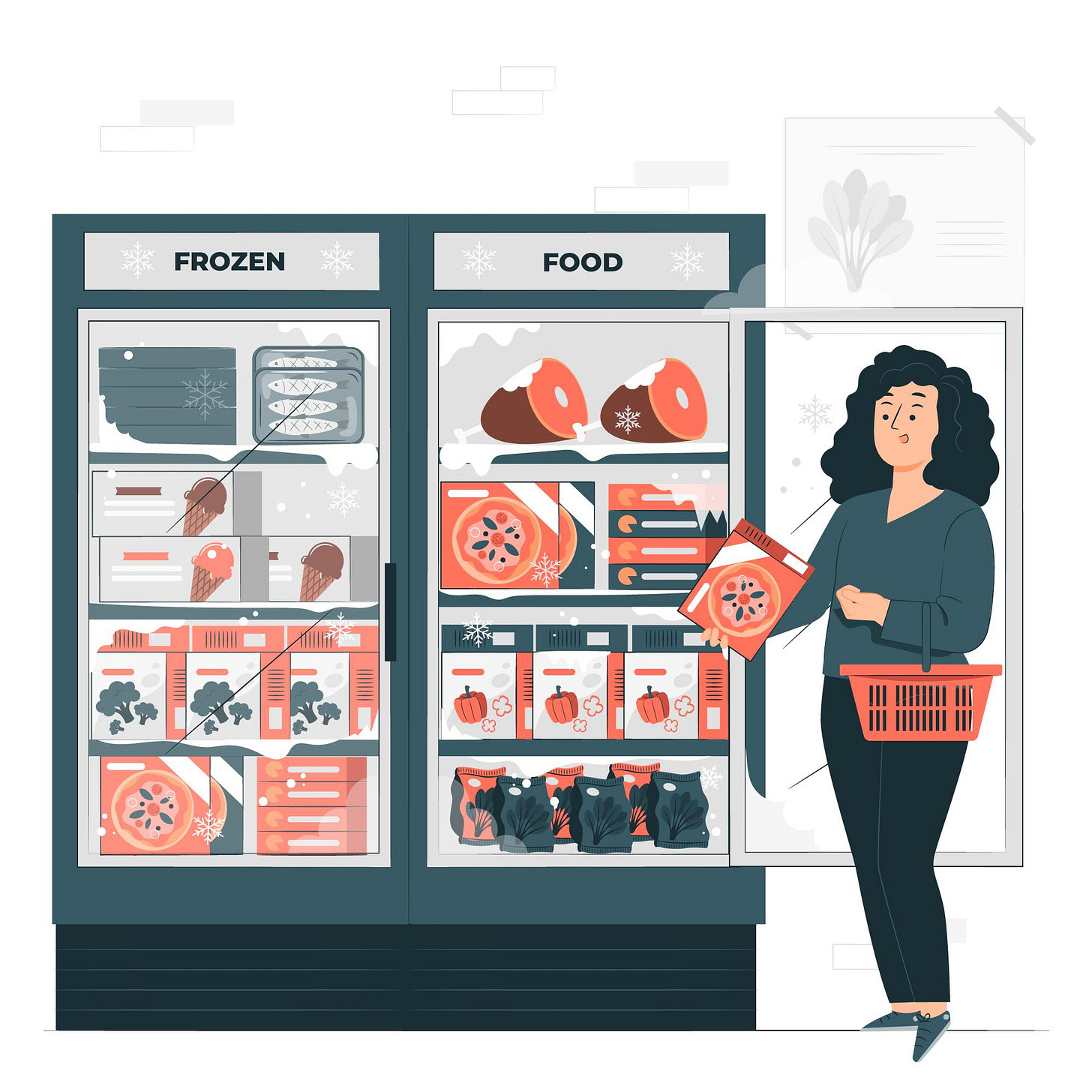Frozen food offer the convenience of precooked food, with a much higher quality and freshness than what is possible in the typical kitchen. It offers a convenient and affordable way to access a variety of foods. Despite its popularity, the category has quite a few common myths about its nutritional value and safety. Let’s walk through some of the most common myths about frozen food and burst the truth behind these misconceptions.

Photo by Isaac N.C. on Unsplash
Myth #1: Frozen food is less nutritious than fresh food
One of the most persistent myths about frozen food is that it is less nutritious than fresh food. This myth is based on the belief that frozen food loses its nutritional value over time. Good news! Frozen food is not just a tasty alternative to fresh food. It can also play an important role in your overall health and nutrition. This is because the process of freezing food locks in its nutritional value, preventing the loss of vitamins and minerals that can occur with other forms of food preservation.
Myth #2: Frozen food is of lower quality than fresh food
Another common myth about frozen food is that it is of lower quality than fresh food. This is not true. Frozen food can be of equal or even higher quality than fresh food, as the process of freezing can preserve the freshness and flavor of the food. Additionally, many frozen foods are flash-frozen within hours of being harvested, which means that they are often fresher than fresh food that has been transported long distances to reach the store.
Myth #3: Frozen food tastes bland and unappetizing
Many people believe that frozen food tastes bland and unappetizing. This is not true. The quality of frozen food has improved greatly in recent years, and many frozen foods now offer the same great taste and flavor as fresh food. Additionally, frozen food can be a great option for busy individuals who do not have the time to cook from scratch, as many frozen meals offer delicious and convenient options for busy lifestyles.
Myth #4: Frozen food is not safe to eat
Another common myth about frozen food is that it is not safe to eat. This is not true. Frozen food is safe to eat as long as it is stored and prepared properly. The process of freezing food kills bacteria and pathogens, making it a safe option for people who are concerned about food safety. Additionally, many frozen foods are packaged with preservation techniques that ensure that the food remains safe to eat even after being frozen for an extended period of time.
Myth #5: Frozen food is only for people who do not cook
Many people believe that frozen food is only for people who do not cook. This is not true. Frozen food can be a great option for people of all cooking abilities, as it provides a convenient and easy way to access a variety of foods, regardless of whether you are an experienced cook or a beginner. Additionally, frozen food can be a great option for busy individuals who do not have the time to cook from scratch, as many frozen meals offer delicious and convenient options for busy lifestyles.

Frozen food is just as nutritious and safe as fresh food. Frozen foods have all the major nutrients found in fresh, organic produce with none of the added processing or preservation processes used in fresh food products. It is possible to freeze raw meat and poultry without altering its quality or flavor, which can make it a great option for people who prefer hassle-free cooking and of course, more time with your loved ones.

